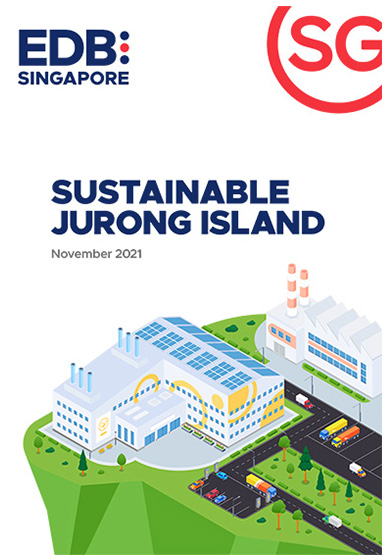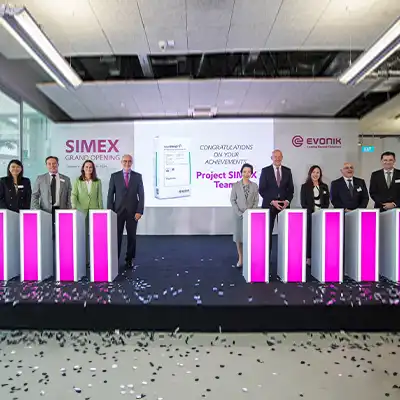A new research institute focusing on how to shrink the carbon footprint of the industrial sector - responsible for about 60 per cent of the country's total emissions - has been set up on Jurong Island.
The Institute of Sustainability for Chemicals, Energy and Environment (ISCE2) has been set up by the Agency for Science, Technology and Research (A*Star) and is led by Professor Yeoh Lean Weng, the agency's chief sustainability officer.
The new outfit was announced on Tuesday (March 8) by Trade and Industry Minister Gan Kim Yong in Parliament, during an omnibus session on Singapore's green efforts.
"ISCE2 will advance research areas such as carbon capture and utilisation, low-carbon hydrogen, carbon life-cycle accounting, and synthetic biology to pave the way for alternative green materials, products and processes, to support Singapore's sustainability agenda," he said.
The research institute will continue to partner academia, public agencies, and industry to contribute to Singapore's climate change goals, Mr Gan added, even as he fleshed out how his ministry plans to overcome challenges and capture opportunities in a world trying to wean itself off fossil fuels.
Singapore depends largely on natural gas - a fossil fuel - for its energy needs.Mr Gan said his ministry will work to reduce emissions from power generation by enhancing the efficiency of generation plants, importing renewable energy from elsewhere, and finding new ways of tapping solar energy.
While solar energy is the most viable form of renewable energy for Singapore, its highly built up landscape makes soaking up the sunshine challenging for the country due to shading from buildings and lack of space for large solar farms.
Mr Gan cited port operator PSA , which has installed vertical solar panels on the external walls of its Tuas Port Maintenance Base Admin Building as a trial.
“The Government is also exploring the use of vertical solar panels on other surfaces,” he added.
The minister also reiterated Singapore’s plan to capture opportunities in the green economy, in the areas of green finance, carbon services, and sustainable tourism.
A hotel sustainability roadmap will be launched later this month, he said, and will be a key milestone that will spur hotels to adopt sustainable practices.
Innovation and the development of low-carbon solutions are also key to sharpening Singapore’s competitive advantage in the green economy and facilitating the energy transition, Mr Gan added.
For example, under the Green Plan 2030 - Singapore's blueprint for a more sustainable future that sets out green targets - the Republic wants to turn Jurong Island, the country's petrochemical hub, into a " sustainable energy and chemicals park".
To this end, the new research institute ISCE2 will help to “enhance the synergy” of Singapore’s research and development in low-carbon technologies and solutions, he said.
The new institute will have three focus areas, said A*Star in a separate statement.
This includes the development of environmentally friendly products, such as those that are biodegradable or made of materials that can easily be recycled, as well as research into how industrial processes can be improved so they are more efficient and less wasteful.








